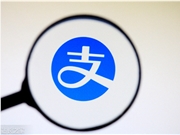Recently, a survey has shown that nearly 50% of job seekers are utilizing artificial intelligence tools like ChatGPT to craft their resumes and cover letters. This trend has led to a surge of low-quality applications in the job market, posing significant challenges for recruiters. Estimates from employers and recruiters, along with some published survey reports, indicate that an increasing number of job seekers are opting for generative AI tools, resulting in a substantial increase in the number of resumes and cover letters submitted.

Image source: Image generated by AI, image authorized by service provider Midjourney
Khyati Sundaram, CEO of recruitment platform Applied, noted that there has been a "flood" of AI-generated applications, leading to more than double the number of candidates per position compared to the past. Andy Heyes, Regional Director of UK-based tech recruitment firm Harvey Nash, also mentioned that clues about whether applicants used AI can be found in the American English and "bland" content they use in their resumes. The actual number of job seekers using AI could be even higher, as some traces are difficult to detect.
Despite many employers taking a zero-tolerance approach, especially large accounting firms like Deloitte, EY, PwC, and KPMG, which have warned recent graduates against using AI in their applications, young job seekers are often adept at concealing their use of AI.
Additionally, generative AI is increasingly being used by applicants to cheat, particularly in recruitment tests. Jamie Betts, Founder and Chief Product Officer of Neurosight, stated that the early career sector is particularly vulnerable, as young job seekers are highly skilled at using advanced generative AI and evading detection.
A survey of 1,500 student job seekers revealed that 57% had used ChatGPT to assist in job applications. Job seekers who used the paid version of ChatGPT performed better in psychological assessments compared to those who used the free version. Betts also noted that among those who paid for ChatGPT, a quarter performed exceptionally well in assessments, and these individuals were often from higher socioeconomic backgrounds, predominantly male applicants, and mostly white. This suggests a correlation between socioeconomic status and the success rate of using AI.
Key points:
🌊 Nearly 50% of job seekers are using AI tools to apply for jobs, leading to a surge of low-quality applications in the job market.
🚫 Large companies have a zero-tolerance policy towards job seekers using AI, yet young applicants can cleverly hide their use of AI.
💰 Job seekers using the paid version of ChatGPT perform better in psychological assessments and this is linked to socioeconomic status.








